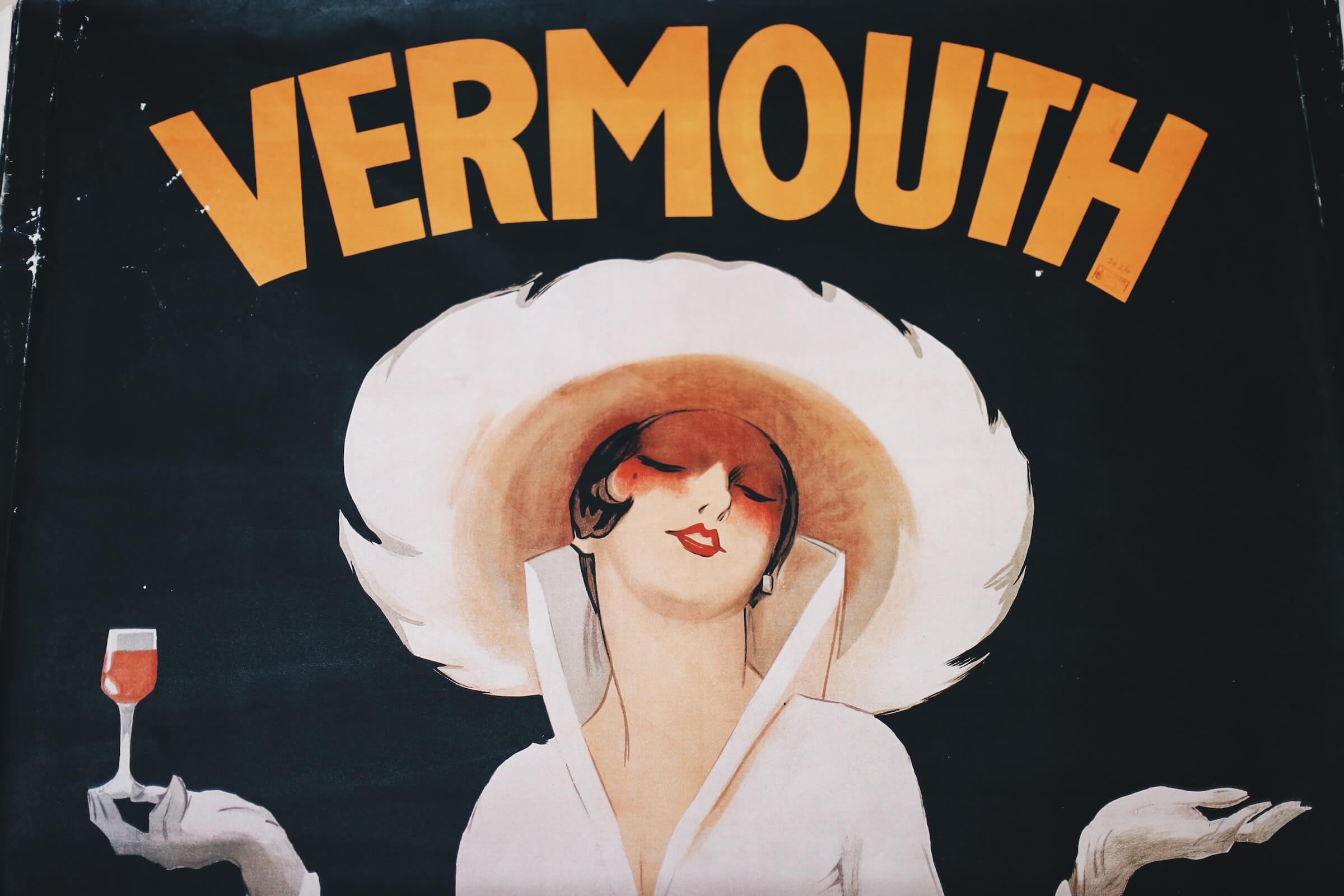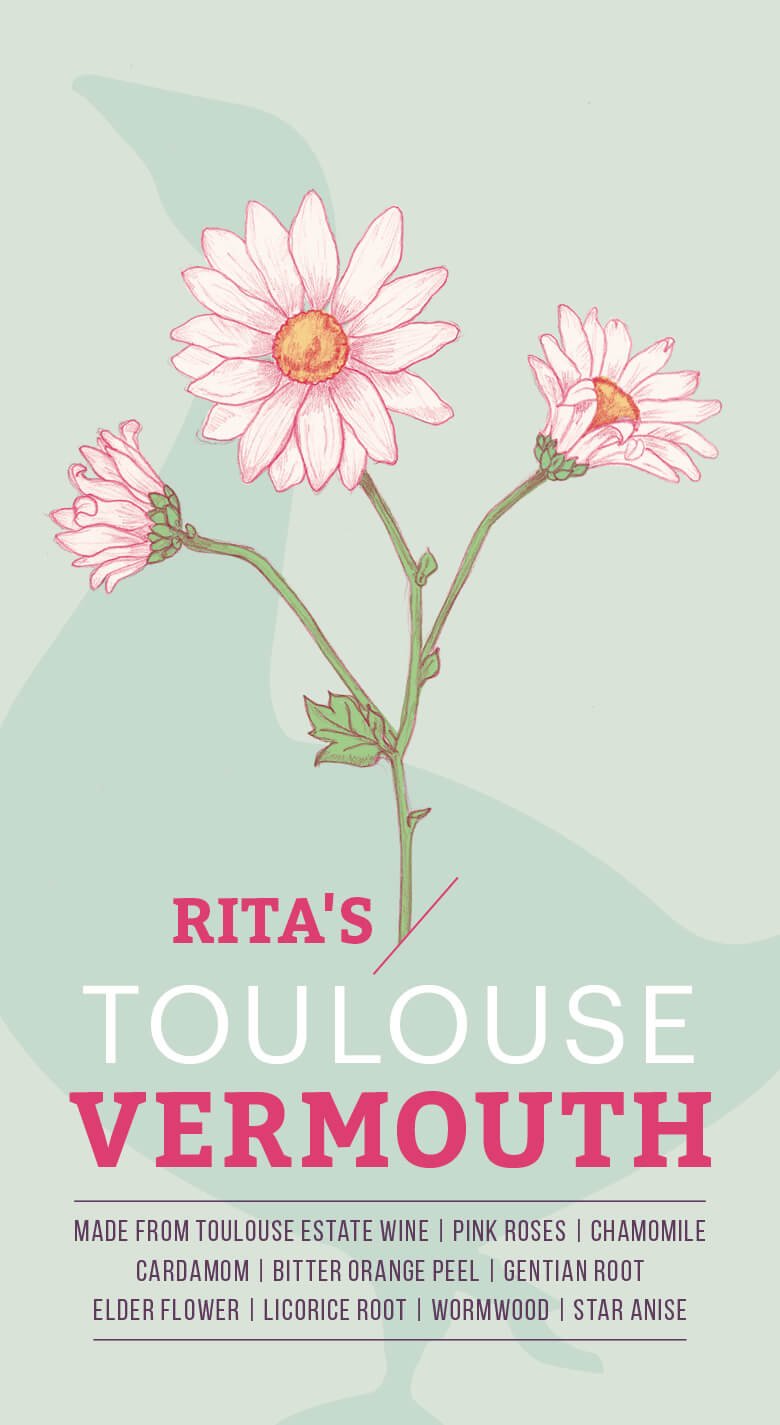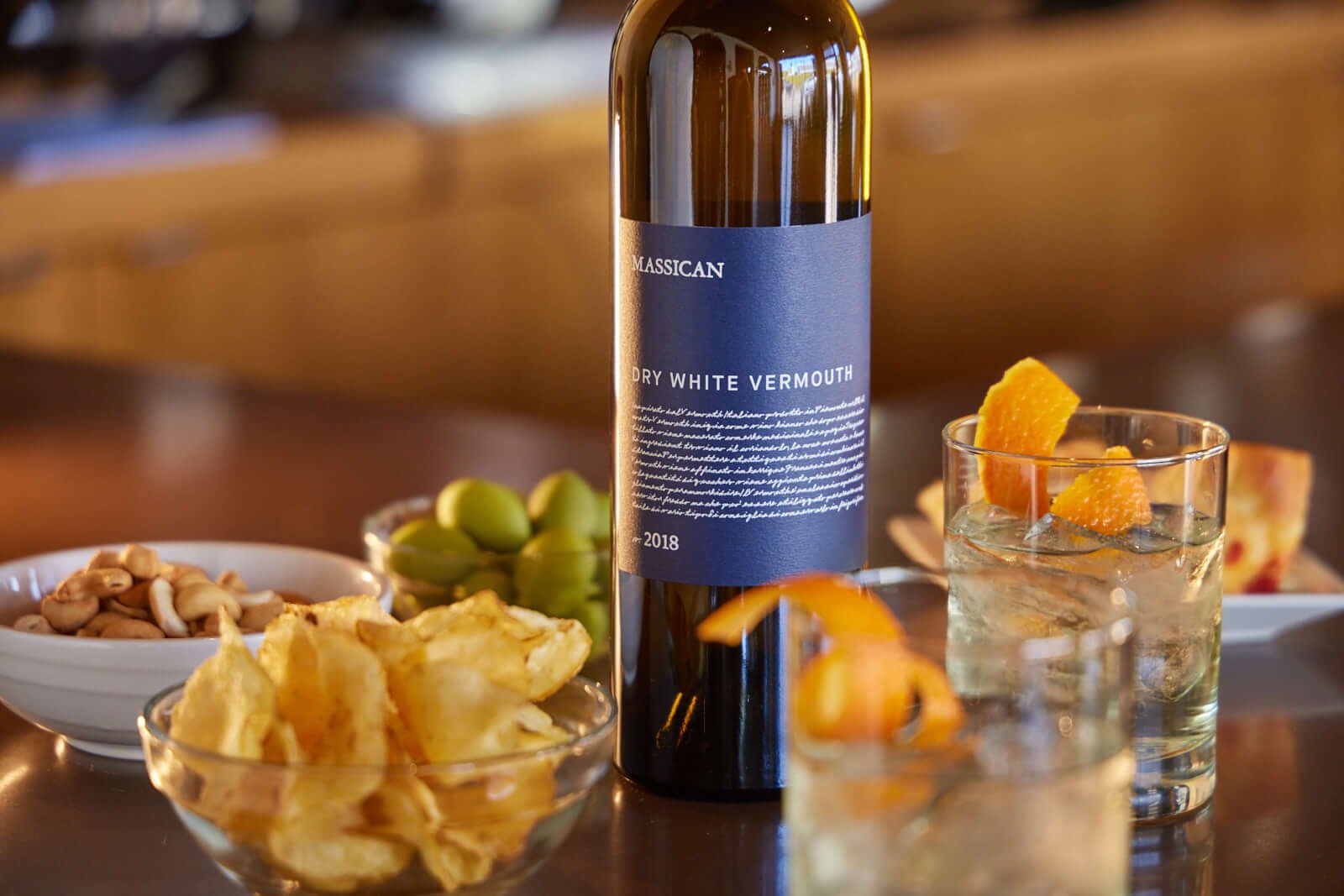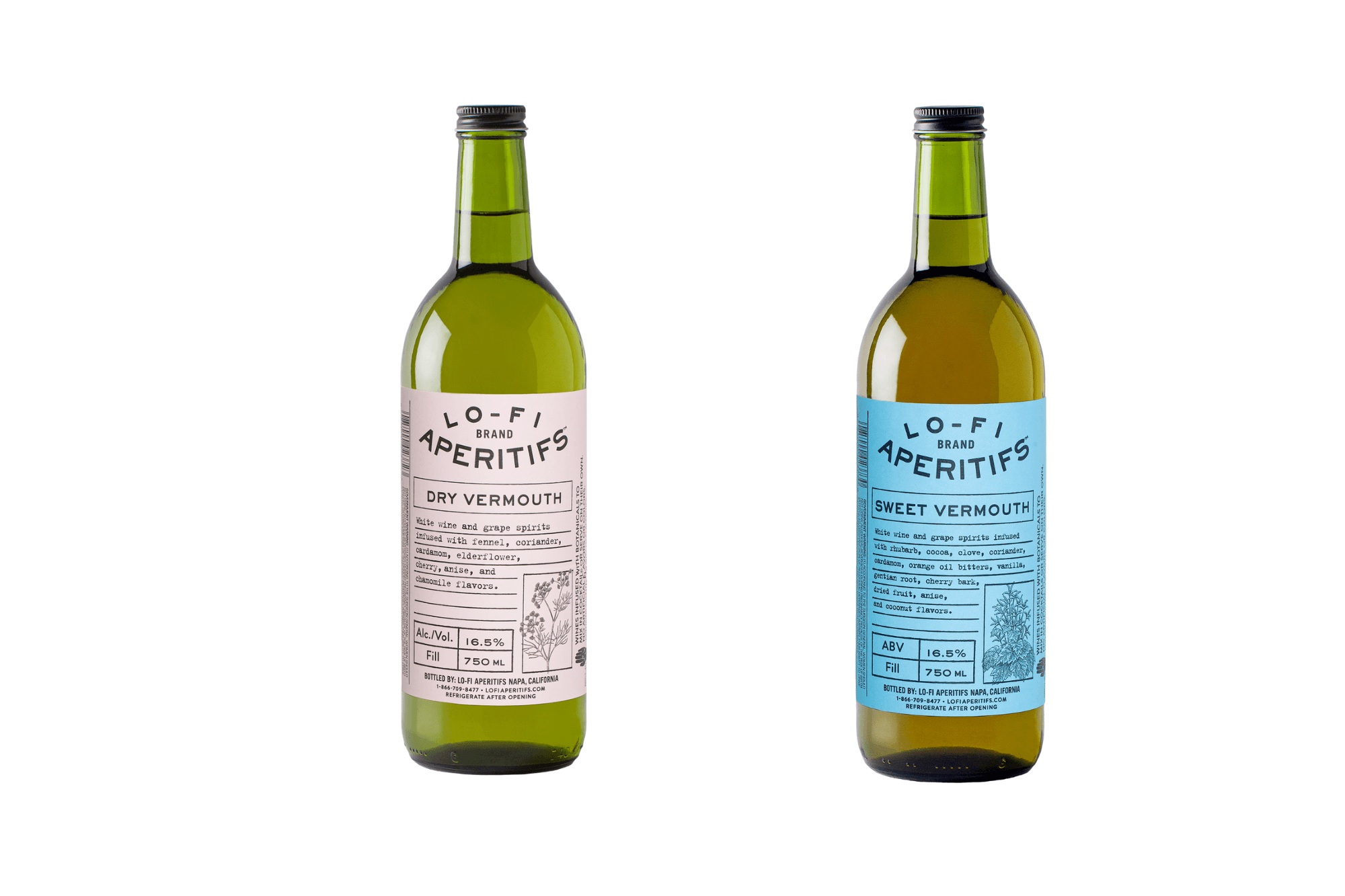California Vermouth: 6 Essential Golden State Standouts
Editor’s note: Recently we took a closer look at classic French and Italian vermouths. But these days you’ll find winemakers producing excellent vermouths in the New World too.
Here’s a tip: If you walk into a bar and see the bartender reaching for an open bottle of unrefrigerated vermouth off the shelf, order a shot and a beer instead of a cocktail. Vermouth is an aromatized wine, meaning it has a shelf life, and needs to be treated less like a bottle of booze and more like a bottle of wine. And while Europe has historically been known as the birthplace for vermouth of all varieties, more and more regional and local producers are getting into the game, specifically in California wine regions, where attention to the base liquid is enhancing the aromatized end result.
What Is Vermouth?
Both sweet and dry vermouth varieties are built off a base of wine, most often white wine, that has been infused with botanical ingredients, sweetened with a varying amount of sugar depending on the type (a small amount for dry, a bit more for blanc, and a large amount for sweet) and then fortified and sometimes aged. The Martini is the most known cocktail that showcases vermouth, but there are countless other drinks that are heightened with the balancing element of all types of vermouth.
Here’s a sampling of California-made vermouth, all taking cues from our understanding of traditional vermouth provenance in Italy and France to present Golden State inspired flavors.
Toulouse Vineyards
Rita’s Toulouse Vermouth
Best known as a Pinot Noir house, and rightly so in this part of Anderson Valley, Toulouse winemaker Rita Vodopals has been passionate about crafting a trio lineup of French-inspired aperitifs in the last few years. The most recent bottling of her Rita’s Toulouse Vermouth is a dry non-vintage blush colored aromatized wine, infused with botanicals like pink roses, chamomile, cardamom, bitter orange peel, gentian root, elderflower, licorice root, wormwood, and star anise. It is equally at home sipped ice cold on a hot day or used to enhance your favorite martini with a bit of floral essence. A visit to the winery, where you can taste on an expansive outdoor deck, may include a build-your-own spritz using the popular estate Goose Bubbles blanc de noir as a base to mixing with her aperitifs.
Dan Petroski, longtime winemaker at historic Napa Valley Cab house, Larkmead Vineyards, recently quit his job to dedicate more of his time to his personal projects, namely his somewhat cultish Massican label. Under this brand, inspired by the aromatic white wines of the Mediterranean, Petroski is also producing two kinds of niche vermouth, both of which are made from Massican white wine and organic herbs and spices that have been steeped in Massican Brandy (distilled by St. George Spirits in the East Bay). After steeping, the Brandy is blended with the wines, then barrel aged for 6-9 months before bottling. The Massican 2018 Dry White Vermouth, which Petroski really likes to use in this Salt & Pepper Martini, contains dried orange peel, coriander, nutmeg and Quassia wood as the bittering agent, with 35 grams per liter of residual sugar. It is a pale straw in color, with a subtle, round sweetness.
The ruby-hued Massican 2018 Sweet Red Vermouth is light bodied, yet juicy with a bitter cherry note. Petroski adds saffron and galangal root, and with the 60 grams per liter of residual sugar, this sweet vermouth is actually on the dry side, making it a perfect one-bottle-version fit for a Perfect Manhattan.
Scribe
The Sonoma County label, Scribe, is known for site-specific wines made using very little intervention. Infused with herbs and citrus grown on the Scribe estate farm, they make two seasonal vermouths. The Summer version has orange peel, wild fennel, lemon verbena while Winter features sage, dill seed, cherry bark and lemon peel. Bottled in May, with a higher ABV than most others (18.5%), the 2021 Summer Vermouth has a goldenrod, glowing hue. It is round and full, almost honeyed, offering more viscosity than a dry white vermouth would, fitting into the blanc category. Uses for this bottle conjure ideas for a White Negroni or anything with a stone fruit profile, or simply on its own over ice.
The name Matthiasson holds a lot of repute and respect in winemaking circles, and this organic Napa-based winery, started in 2003 by Steve and Jill Klein Matthiasson, have also been ahead of the vermouth trend curve, adding it to their lineup years before many others. The Napa Valley Sweet Vermouth No. 6 is tawny in color and in flavor, with dried fig and raisin notes, and a burst of juicy citrus from the home-grown blood orange infusion added at the end. The making of this vermouth is very intentional and complex, with a lovely origin story that reads like a chapter book on rare Flora wine history, botrytis, additional Viognier harvested as raisins and fermented whole cluster, the solera method (non-vintage blend of the 2016 through 2021 vintages), estate grown citrus and sour cherries and meticulous infusions (homegrown cardoons as a bittering agent) and aging in French Oak and Cognac barrels.
What differs about Rockwell from the others on this list is that they distinctly only produce vermouth. In fact, their full name is Rockwell Vermouth Co., which centers around the point-scoring Classic Sweet, Extra Dry (which just became a Wine Enthusiast Top 100 Spirit of the Year) and their brand new Single Cask Sweet Vermouth, of which only 400 hand filled, waxed, and numbered bottles were produced in the first reserve release. Inspired by the old-world traditional use of wormwood, Rockwell set out to re-envision vermouth using a new-world ingredient native to California, Artemisia Californica, also known as sagebrush. Wormwood’s genetic cousin, the use of this highly aromatic shrub lends complexity to all of Rockwell’s bottlings. The new cask release is rich and viscous, with a figgy, crème brulee, nutty flavor. The Savage & Cooke bourbon barrel aging comes through right away, finished with a five-year-aged brandy, and has a profile that makes it a no-brainer for an elevated Manhattan.
A Napa-based brand that has become a darling for bartenders, Lo-Fi is a line of vermouths and amaro made using California white wines, herbs and botanicals. The Lo-Fi Sweet Vermouth uses wine and grape spirits, which are infused with rhubarb, cocoa, clove, coriander, cardamom, orange oil bitters, vanilla, gentian root, cherry bark, dried fruit, anise and a tiny bit of coconut flavoring. The crisp, spicy Lo-Fi Dry Vermouth starts with the same white wine and grape spirit base, adding fennel, coriander, cardamom, elderflower and chamomile flavors. The brand was launched in collaboration between Quaker City Mercantile (the creators of the Sailor Jerry Rum and Hendrick’s Gin brands) and E. & J. Gallo Winery. Any of the bottlings beg to be made into a spritz, enjoyed poolside.









